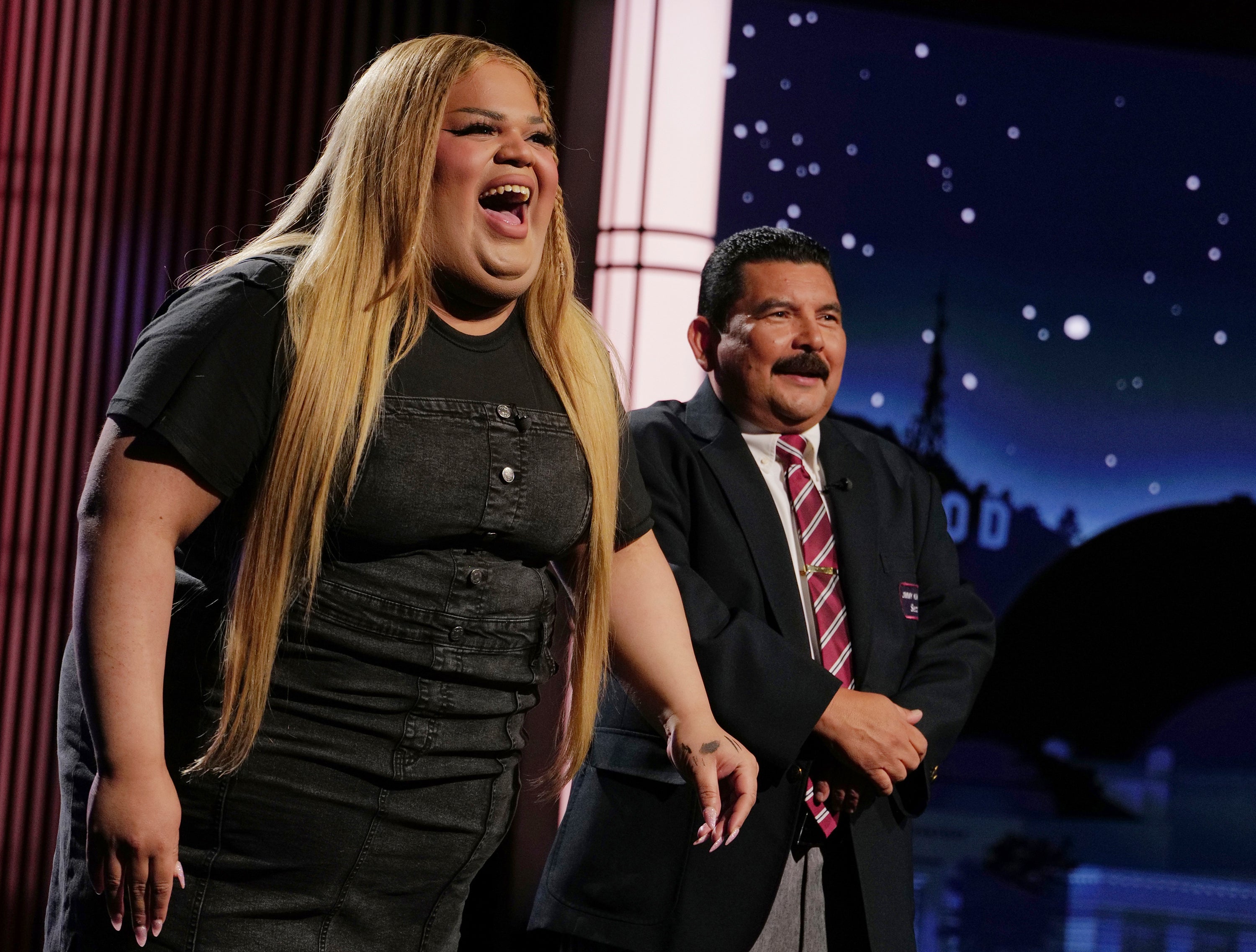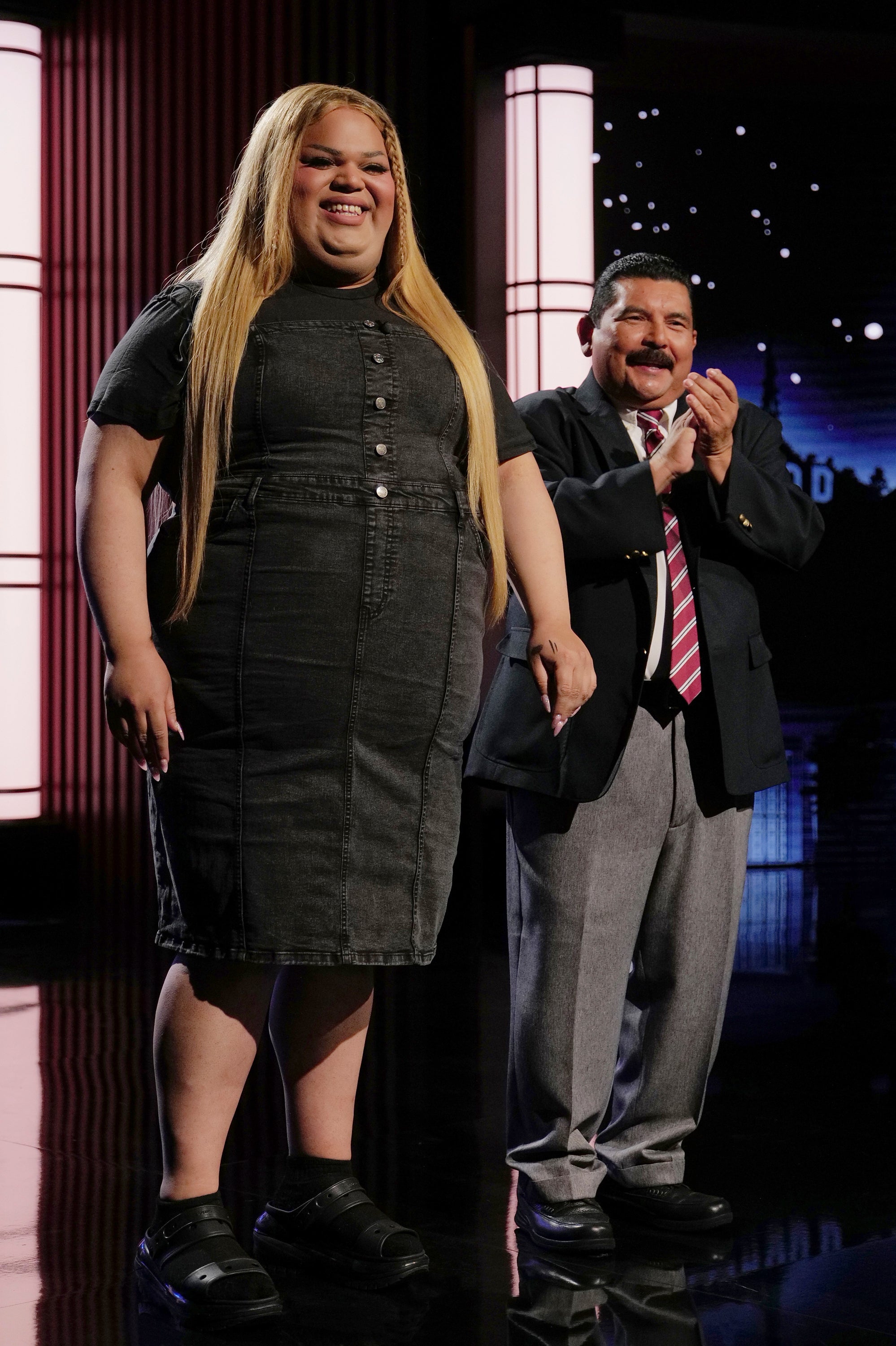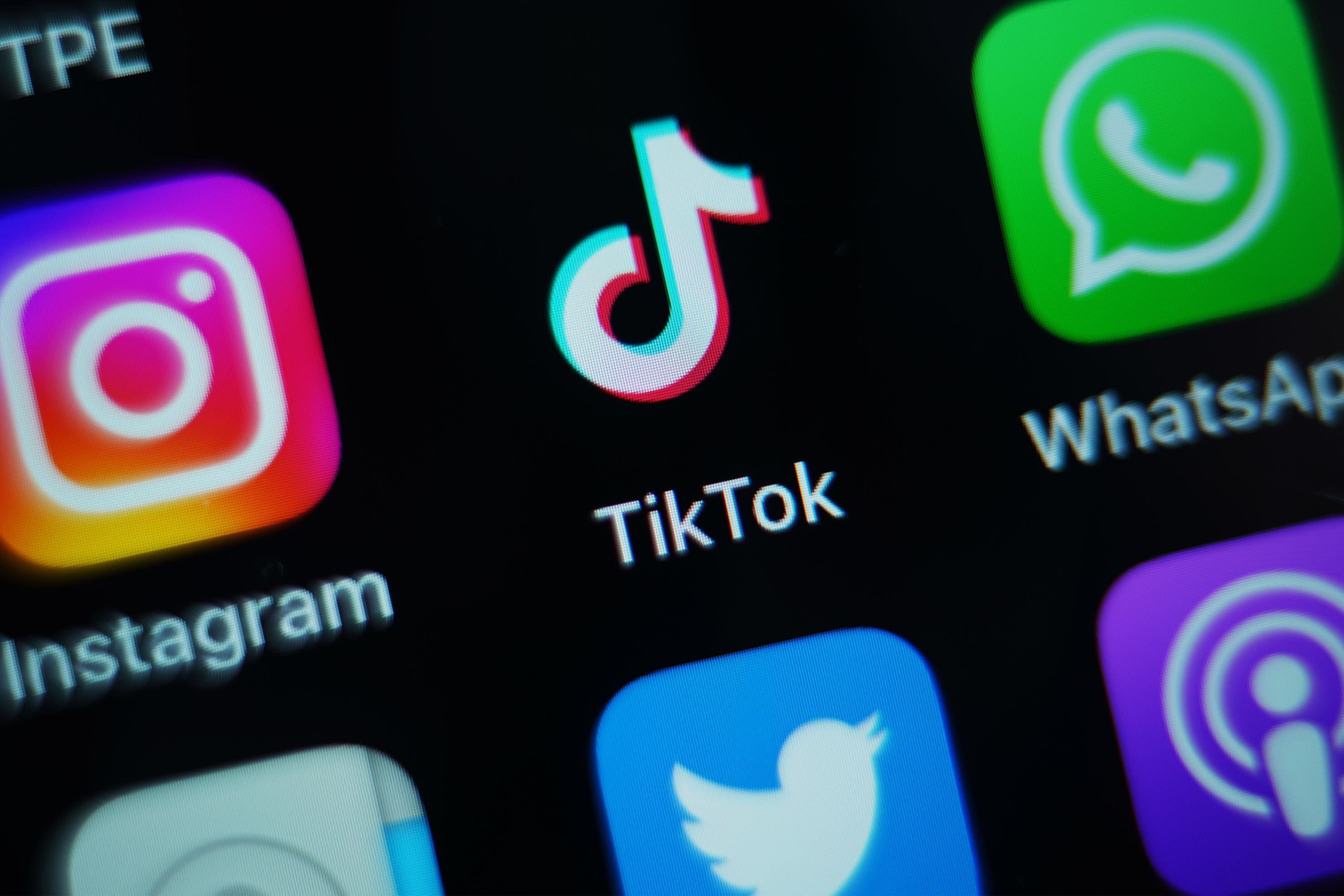What you need to know about Jools Lebron’s ‘very demure, very mindful’ trademark war
Can you trademark a viral phrase? The TikTok star hopes so

“Very demure, very mindful” has become the latest online trend defining the summer. And the creator is now working to trademark uses of her now-viral words.
Jools Lebron filed to trademark “very demure very mindful” for various entertainment and advertising services, including the promotion of beauty products, last week with the U.S. Patent and Trademark Office.
Two filings dated Thursday are under her legal name, a representative for Lebron confirmed.
Trademarks can help secure rights to maintain certain business down the road. But it’s also possible — although rare — for content creators to make meaningful income after gaining social media fame through other avenues like direct brand sponsorships and viewer donations. Lebron, who is a transgender woman, said last month that she was able to finance the rest of her transition.
Lebron's trademark filings are still pending, and it could be a while before there's a final determination. But the move is particularly notable after several other individuals with no known connection to Lebron separately tried to register demure-related trademarks in an apparent effort to capitalize on the success of those phrases, much to the dismay of Lebron's fans.
The TikTok video:
The saga, while unfinished, has spotlighted the complex process of filing trademarks that capture a viral moment — and the battle that social media content creators face to both get credit and find protections to monetize off the trends they popularize.
Can you trademark a viral phrase?
Yes. But in the U.S., there needs to be an attached commercial use.
“It’s not just coming up with a phrase ... (or) using it on social media and making it go viral,” said Alexandra J. Roberts, a professor of law and media at Northeastern University, explaining that there must be a connection to the sale of concrete goods or services. She calls trademarks a “source indicator,” as they help consumers understand who is producing what they're buying now, but not necessarily who came up with a name in the first place.
The law is complicated, and trademarks are often determined on a case-by-case basis. Applications are specific to certain uses, allowing multiple brands to operate under similar names — like Dove chocolate and Dove soap, or Delta Faucet and Delta Airlines. Courts greenlight this when it's assumed that consumers will easily be able to distinguish between such different products or services.

But a phrase or name that’s strongly associated with a particular individual can sometimes supersede that.
“Simplistically, the entire reason the trademark exists is to prevent consumer confusion,” said Casey Fiesler, an associate professor of information science at the University of Colorado Boulder. “And if (someone else) created a social media marketing service and called it ‘very demure, very mindful social media marketing,’ that would confuse consumers because they’re gonna think it’s associated with (Jools Lebron).”
Trademarks should not be mixed up with copyright. Anyone who has ever made a unique TikTok, for example, owns the copyright to that video, Fiesler explains. But there are still limitations to what’s copyrightable, and short phrases themselves almost never apply.
In today’s ever-digitized world of online trends, creators are increasingly expressing concerns about getting credited for their work. And for something like trademark rights, experts stress it’s a battle of both getting there first and having resources to see it through.
It’s not uncommon to see a handful of trademark applications bubble up in the midst of a viral moment. Earlier this year, for example, a handful of trademark applications were filed after Hailey Welch, also now known as “Hawk Tuah Girl,” became famous for using the phrase in a street interview.
Still, some phrases have been determined to be used too pervasively, making it harder for consumers to recognize it as a brand indicator. It can also be difficult when credit isn’t given to the creator who starts a trend in the first place — and experts note the consequences of that haven't been felt equally in the past.

Historically, young women of color who start a viral trend or put a new phrase on the map have often seen their work get appropriated online — and potentially “get scooped” on trademark rights from someone with more resources, like connections to a lawyer, Roberts explained.
“There are a lot of stories of members of minoritized groups, and particularly women, coming up with new slang ... and then seeing that get co-opted by somebody else — often a white guy, but not always ... (who) gets out there as the first to register and really make money off it,” Roberts said.
Beyond trademark-specific disputes, Fiesler added that creators seeing their work stolen and reposted in other platforms for monetization continues to be a “huge problem” today but she hopes the tide is starting to turn. That includes with Lebron, who has been so widely-credited for the “very demure” trend.
“I hope to continue to see there being very strong social norms that are enforcing this,” Fiesler said.
What’s the status of other demure-related trademark filings?
Three applications that were submitted before Lebron’s Thursday filings are still listed as live in the USPTO’s records — which would essentially make her “fourth in line” in consideration, Roberts said.
But it's possible that others might later suspend their filings. And one of the applicants told NBC said that she filed in efforts to help Lebron hold on to trademark until she could transfer it.
What options does Lebron have?
Lebron's legal team could potentially fight off rival filings or strengthen her own by negotiating with other applicants and updating her filing to reduce any overlap. She could also oppose a rival application down the road on the grounds of false association.
The trademark process itself could take anywhere between six to nine months, and sometimes closer to a year. And that can drag out even further with a legal battle or requested extensions.
Still, Roberts stresses that Lebron can currently “do whatever she wants in terms of use” and start selling merchandise.
There's also nothing stopping someone from putting “very demure, very mindful” on the front of a t-shirt — as that technically qualifies as ornamental use, not trademark.
But getting those words as a brand, seen on something like an attached clothing tag, is when trademark rights would kick in.